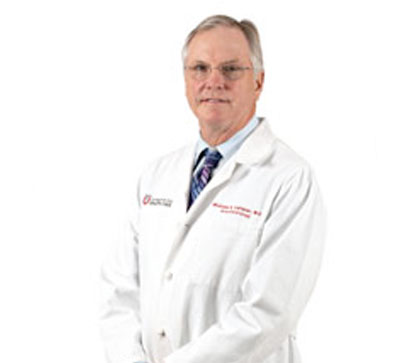NEW FAST-TRACK PROTOCOL IMPROVES PATIENT CARE

When nsqip data showed that the laparoscopic colectomy length of stay for our patients was among the longest in the nation, colon and rectal surgeon Bradford Sklow, M.D., rallied two of his surgeon colleagues to figure out how to turn that data around.
Surgical oncologist Courtney Scaife, M.D., colon and rectal surgeon William Peche, M.D., and Sklow conducted a thorough review of the literature and then developed a new protocol for laparoscopic colectomies based on a Mayo Clinic study. Their goals were to improve recovery time, shorten length of stay and decrease morbidity.
They established a new fast track protocol and the results were dramatic, thanks in part to nurses who implemented the new protocol and created key patient education materials. After one year, the average length of stay decreased from 6.1 days to 4.6 days (better than Mayo Clinic's average). "Some of our patients were ready to go home just two days after surgery, which is unbelievable," says Peche. In addition to improving patient care, the hospital saves an average of $1,765 per surgery on direct labor and supplies.


